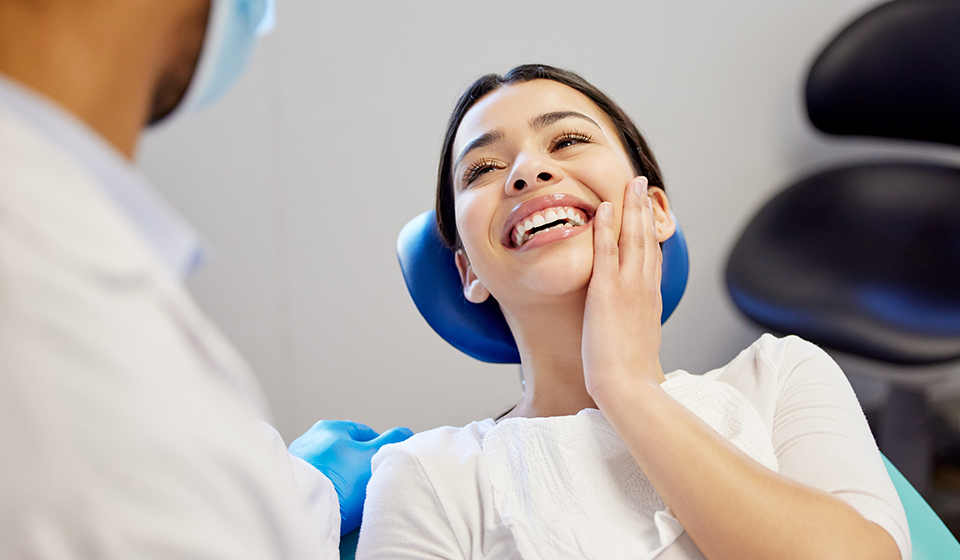Good oral health doesn’t just happen, it’s built day by day through habits, care, and professional guidance. Preventive dentistry is the cornerstone of maintaining a strong, healthy smile for life. By addressing dental concerns before they turn into bigger problems, patients can save time, money, and discomfort. Preventive dentistry in Houston is designed to stop issues such as cavities, gum disease, and enamel wear before they begin. This approach goes beyond just brushing and flossing; it combines at-home practices with professional treatments to keep your teeth and gums in optimal condition.
At its core, preventive dentistry empowers individuals to take charge of their oral health while ensuring long-term benefits for their overall well-being.
Importance of Preventive Dentistry
Preventive dentistry is not only about avoiding dental problems; it’s also about enhancing your quality of life. Strong, healthy teeth allow you to enjoy the foods you love, speak with confidence, and maintain a radiant smile. When preventive care is prioritized, patients avoid the stress of costly, complex treatments later on.
Some key reasons why preventive dentistry matters:
- Reduces risk of cavities, gum disease, and tooth loss
- Saves money by minimizing the need for major dental procedures
- Promotes better overall health by lowering risks of heart disease and diabetes complications
- Improves self-confidence through a healthier, brighter smile
- Helps children develop good habits that last into adulthood
Core Practices in Preventive Dentistry
Preventive dentistry involves a combination of professional treatments and daily practices. Both are equally important in maintaining long-term oral health.
Daily Habits That Protect Oral Health
The foundation of preventive dentistry starts at home. By making simple, consistent choices, you can significantly reduce the risk of dental problems.
- Brush teeth at least twice daily with fluoride toothpaste.
- Floss once a day to clean between teeth and along the gumline.
- Rinse with an antimicrobial mouthwash to reduce bacteria.
- Limit sugary and acidic foods that erode enamel.
- Drink water throughout the day to rinse away food particles.
- Replace toothbrushes every three months or after an illness.
These everyday practices act as the first line of defense in preventive dentistry.
Professional Treatments in Preventive Dentistry
Dentists offer specialized treatments that strengthen your teeth and protect against future problems. Some of the most common preventive procedures include:
- Regular cleanings and checkups—Professional scaling removes plaque and tartar that daily brushing cannot.
- Fluoride treatments—Strengthen enamel and make teeth more resistant to decay.
- Dental sealants—Protective coatings applied to molars to prevent cavities in hard-to-reach areas.
- X-rays and exams – Detect hidden issues early, before they become serious.
- Oral cancer screenings—Ensure early detection of abnormalities for better treatment outcomes.
Together, these treatments provide a strong safety net against dental problems.
Preventive Dentistry for Children
The best time to start preventive care is early. Children benefit enormously from preventive dentistry, as it lays the groundwork for lifelong oral health.
- Sealants protect young molars from cavities.
- Fluoride applications strengthen developing teeth.
- Early orthodontic evaluations prevent misalignment problems.
- Education helps children learn proper brushing and flossing techniques.
When children grow up practicing preventive dentistry, they are far less likely to struggle with dental issues as adults.
Preventive Dentistry for Adults and Seniors
Oral health needs evolve with age, making preventive care just as important for adults and seniors.
- Adults often require periodontal evaluations to monitor gum health.
- Regular cleanings and exams prevent enamel erosion and tooth loss.
- Seniors benefit from monitoring for dry mouth, a common side effect of medications.
- Oral cancer screenings are especially important in older populations.
Preventive dentistry for adults and seniors focuses on preserving natural teeth, protecting restorations, and ensuring quality of life.
Best Practices for Long-Term Oral Health
Preventive dentistry works best when patients commit to a lifetime of good habits. Here are some best practices that support healthy teeth and gums well into the future:
- Schedule dental checkups every six months
- Stick to a balanced diet rich in calcium, vitamin D, and other essential nutrients.
- Avoid tobacco and limit alcohol, as both increase risks of gum disease and oral cancer.
- Use a nightguard if you grind your teeth to prevent wear.
- Stay consistent with at-home care routines
These best practices help you avoid problems while keeping your smile strong and attractive.
The Role of Dentists in Preventive Care
Dentists play a critical role in identifying problems before patients even notice symptoms. They use advanced tools to detect cavities, gum issues, and oral cancer at their earliest stages. More importantly, dentists guide patients with customized recommendations that fit their lifestyle and health history.
Preventive dentistry works best when patients view their dentist as a partner in their health journey. Regular communication ensures treatments remain effective and tailored to individual needs.
Conclusion
Preventive dentistry is an investment in your future health, comfort, and confidence. By combining daily habits with professional care, patients can avoid painful, expensive treatments and enjoy beautiful, healthy smiles for a lifetime. The key is consistency, making preventive dentistry part of your everyday routine.For compassionate care and personalized treatment plans, Unident Family Dentistry in Houston is here to help you achieve lasting oral health and a confident smile.














